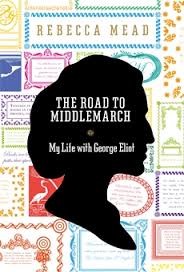 Published by Granta UK 6 March 2014, Crown US 28 January 2014
Published by Granta UK 6 March 2014, Crown US 28 January 2014
304pp, hardback, £16.99
Reviewed by Jessica Mann
Rebecca Mead’s first book takes an original form, combining personal memoir with literary criticism and biography in a leisurely exploration of Middlemarch by George Eliot. The author, born Mary Anne Evans, used a male pen name so that her writing would be taken seriously. It was, and still is: many readers consider Middlemarch the greatest novel in the English language. Virginia Woolf called it one of the few English novels written for grown-up people, and the influential F.R. Leavis, according to my Cambridge contemporaries to whom he taught Eng. Lit., asserted that it was the only English novel worth reading. Middlemarch, subtitled “A Study of Provincial Life”, appeared in serial form before its first single volume publication in 1874. It has been in print ever since.
Rebecca Mead lives in the United States where she is a staff writer at the New Yorker magazine, but she was born and grew up in England. She was seventeen when she first read Middlemarch and felt that it was speaking directly to her; she could see her own life in that of its heroine Dorothea, both of them young women living in the English provinces waiting for real life to begin. She has re-read it every five years since then. ‘There are books that seem to comprehend us just as much as we understand them, or even more. There are books that grow with the reader as the reader grows, like the graft to a tree.’ Now in her forties Mead is still discovering new interpretations and insights, and relishing autobiographical coincidences; for example, Rebecca became the second wife of a man who already had three boys. So did George Eliot though her ‘husband’ George Lewes, in that pre-divorce era, remained legally tied to their mother. When he and George Eliot set up home together, many of their friends were sincerely shocked, and she was ostracized by her own relations.
You don’t have to share Mead’s feelings about Middlemarch to find this a beautifully written and charming book. The biographical facts about George Eliot are related with such a light touch that it was only after reading the last page that I realized how much I had learnt about Eliot herself and the times she lived in. The literary criticism of Middlemarch is acute and original. The autobiographical details supply a tactfully limited amount of information about Rebecca Mead. But most of all I welcome this demonstration of the effect that a book can have on its reader. For although I have never warmed to Middlemarch myself, there are other novels that I reread repeatedly, books peopled by characters who have, in some way, become friends or role models, whose voices I can hear, whose company I don’t so much crave as have – an irrational conviction that Rebecca Mead manages to make rational.
